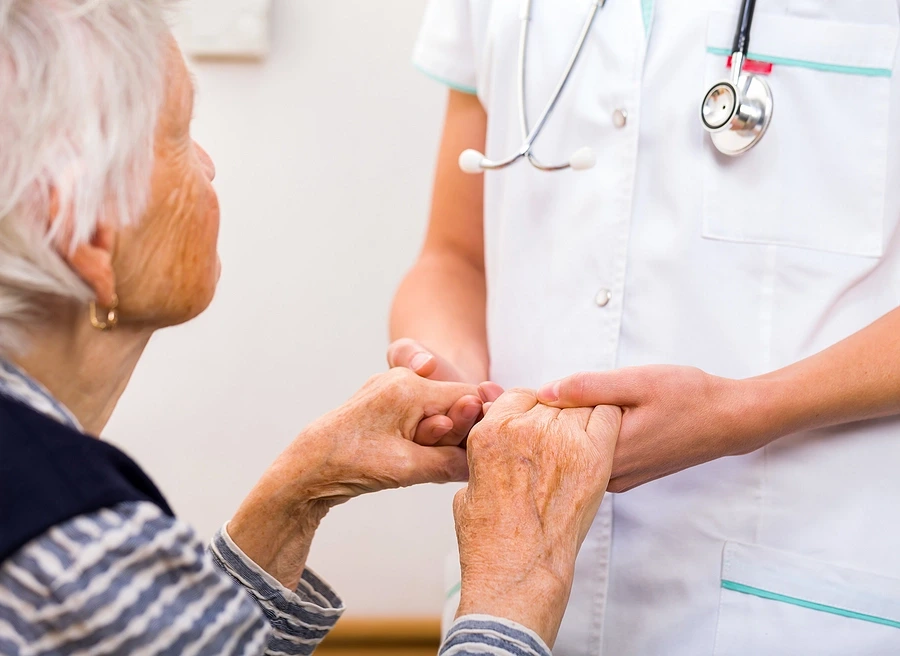Nursing Home Abuse Lawyer Simpsonville

No family should have to worry about the safety of a loved one in a nursing home, but abuse and neglect happen more often than many realize. If you suspect that someone you care about is being mistreated in a Simpsonville facility, Mann, Blake & Jackson is ready to step in. Our legal team takes these cases seriously and works quickly to protect the vulnerable from harm. Whether your case involves physical abuse, emotional mistreatment, or neglect, a skilled nursing home abuse lawyer from our firm can help. Call 864-777-4262 for a free consultation and take the first step toward justice.
Common Types Of Nursing Home Abuse Cases
Families trust nursing homes to provide safe and compassionate care for their elderly loved ones. Unfortunately, abuse and neglect still occur in some facilities, causing physical harm and emotional pain. Understanding the common types of nursing home abuse can help families identify warning signs and take action to protect their relatives.
If you have a family member in a nursing home near Simpsonville or anywhere in South Carolina, knowing what forms abuse can take is critical.
Physical Abuse
Physical abuse is one of the most obvious and serious forms of mistreatment in nursing homes. It involves intentional use of force that causes injury, pain, or impairment. Examples include hitting, slapping, pushing, burning, or restraining residents inappropriately.
Victims of physical abuse may suffer bruises, broken bones, cuts, or internal injuries. Because elderly residents can be fragile, even minor physical harm can have severe consequences.
Signs of physical abuse can include unexplained injuries, fearfulness around staff, and sudden changes in behavior.
Emotional and Psychological Abuse
Emotional abuse involves actions that cause mental distress or emotional suffering. This can be verbal insults, threats, humiliation, intimidation, or isolating a resident from family and friends.
Though not always visible like physical injuries, emotional abuse can lead to anxiety, depression, and withdrawal. Residents may become less communicative or exhibit sudden mood swings.
Emotional abuse is often harder to prove but can be just as damaging to a person’s well-being.
Sexual Abuse
Sexual abuse in nursing homes includes any non-consensual sexual contact or exploitation. This is a deeply traumatic violation of a resident’s rights and dignity.
Elderly victims may be hesitant to report sexual abuse due to shame or fear of retaliation. Physical signs might include bruising, bleeding, or infections, but emotional trauma is often significant.
Any suspicion of sexual abuse should be taken seriously and reported immediately to authorities.
Neglect
Neglect happens when nursing home staff fail to provide necessary care or assistance. This can be intentional or due to understaffing and lack of proper training.
Examples include not helping residents with eating, bathing, toileting, or mobility; failing to administer medications properly; ignoring medical needs; and leaving residents in unsafe conditions.
Neglect often leads to dehydration, malnutrition, bedsores, infections, and worsening medical conditions. It can be deadly if untreated.
Financial Exploitation
Financial exploitation occurs when someone illegally or improperly uses a resident’s money or property. This may involve theft, coercion, or fraud by staff, family members, or others.
Common signs include unexplained withdrawals, missing possessions, sudden changes to wills or powers of attorney, and unpaid bills despite having funds.
Elder financial abuse can leave residents vulnerable and powerless, adding to their distress.
Abandonment
Abandonment refers to leaving a resident without necessary care or supervision. This could mean walking away during a medical emergency or failing to return after a temporary absence.
It can result in serious harm if the resident is unable to care for themselves or respond to danger.
Violation of Residents’ Rights
Nursing home residents have legal rights to dignity, privacy, freedom from abuse, and the right to make decisions about their care. Violations of these rights may not be physical abuse but still cause harm.
Examples include denying visitors, restricting communication, or improperly using restraints.
Why Identifying Abuse Early Matters
Recognizing the signs of nursing home abuse quickly can prevent further harm. Families who notice unexplained injuries, changes in behavior, or poor living conditions should investigate and report concerns.
South Carolina agencies like the Department of Health and Environmental Control and the Long-Term Care Ombudsman Program handle complaints and inspections. However, legal action may be necessary to hold negligent parties accountable and obtain compensation.
Legal Remedies for Victims
Victims of nursing home abuse and their families can pursue civil lawsuits to recover damages for injuries, medical expenses, pain and suffering, and more. In cases of criminal conduct, perpetrators may face prosecution.
An experienced personal injury attorney in Simpsonville can guide families through the complex legal process, gather evidence, and fight for justice.
Preventing Nursing Home Abuse
While not always possible to prevent abuse, families can take steps to reduce risks:
- Visit regularly and stay involved in care decisions
- Communicate openly with staff and management
- Monitor medical and hygiene conditions
- Report any suspicions immediately
- Choose facilities with good reputations and adequate staffing
Active engagement can make a big difference in ensuring loved ones are safe.
Nursing home abuse takes many forms, from physical harm to financial exploitation. Understanding these common types helps families stay vigilant and respond promptly when problems arise.
Justice Begins with a Simpsonville Nursing Home Abuse Attorney
Discovering that your loved one has suffered mistreatment in a nursing home is heartbreaking. No one should have to endure abuse or neglect, especially in a place meant to provide care and comfort. At Mann, Blake & Jackson, we take these cases personally. Our nursing home abuse attorney will investigate your concerns, protect your loved one’s safety, and pursue the legal remedies available. Families in Simpsonville can rely on us to demand accountability and seek justice for victims. Don’t wait to take action—call 864-777-4262 now for a free consultation and let us help you stand up for those who cannot speak for themselves.

